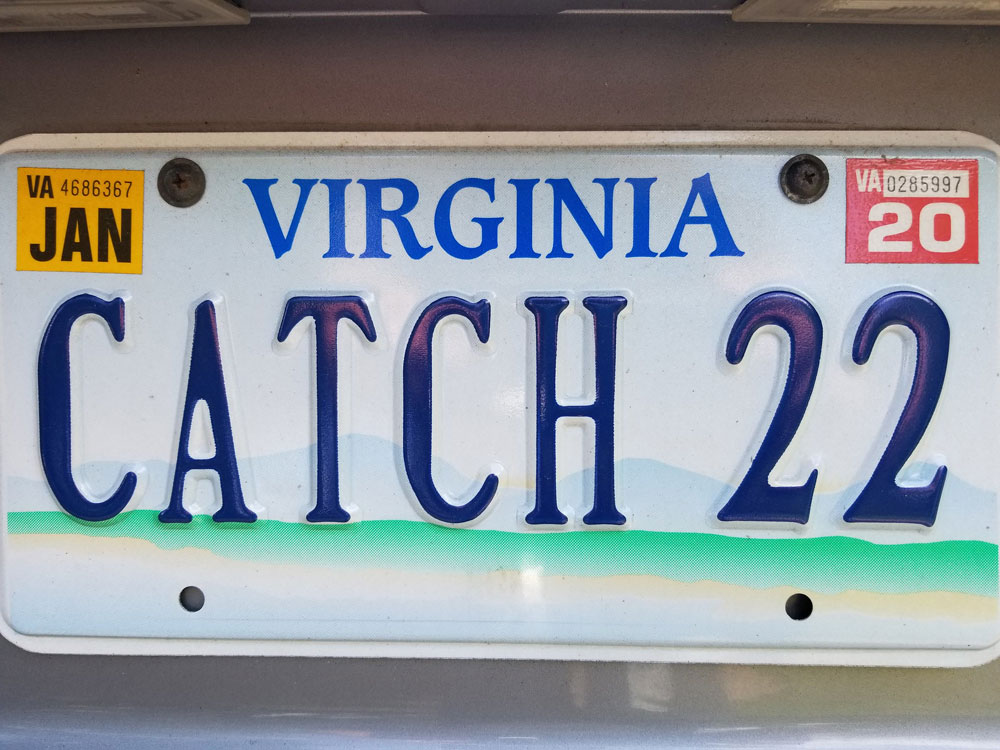
February 20, 2020; Public Source
“In Pennsylvania, state law requires the Pennsylvania Department of Transportation [PennDOT] to automatically suspend a resident’s license for not paying or responding to a traffic citation—even for offenses that don’t otherwise warrant a suspension, like running a stop sign. According to PennDOT, 376,000 drivers…have their license suspended for failure to pay or respond,” writes Juliette Rihl for Public Source.
Pennsylvania is not alone. All told, according to Free to Drive, a national coalition of over 100 organizations formed in September 2019, there are at least 11 million suspensions across the country in 44 states and the District of Columbia. The six states that do not have this policy are California, Montana, Idaho, Wyoming, Kentucky, and Mississippi.
For many, the practice creates a catch-22. As Rihl points out, “not paying one’s fines results in a suspended license, making it harder to work and pay the fines that caused the suspension.”
Sam Brooke, deputy legal director of the Economic Justice Project at the Southern Poverty Law Center, concurs. “When you take away the driver’s license of someone who doesn’t have the ability to pay in the first place, they’re not suddenly going to be able to pay.” Worse, suspending someone’s driver’s license limits access to jobs, making it more difficult to pay.
In Pennsylvania, Rihl writes, the state legislature is considering how to address the problem. One measure, House Bill 80, “would create a one-year driver’s license amnesty program for people who have their license suspended for failure to pay or failure to respond to a traffic citation. The program would still require individuals to pay the fines, fees, and penalties for the original offense but would provide amnesty from subsequent suspensions resulting from driving with a suspended license. The program would also allow for community service to satisfy the underlying charge.”
Sign up for our free newsletters
Subscribe to NPQ's newsletters to have our top stories delivered directly to your inbox.
By signing up, you agree to our privacy policy and terms of use, and to receive messages from NPQ and our partners.
A second option being proposed in the Pennsylvania Senate, in a measure introduced by state senators Pat Stefano, R-Fayette, and Jay Costa, Jr., D-Forest Hills is to allow for alternatives to payment, including community service. Pittsburgh Mayor Bill Peduto endorsed the bill in December 2019.
Another more far reaching option that has yet to come to the legislature in Pennsylvania is to do what San Francisco did in 2015 and stop suspending driver’s licenses for failure to pay completely. At the time San Francisco did this, it was the first city in California to do so. The focus instead was to improve revenue collection by sending more frequent reminders, by making payment plans more accessible, and by providing discounts based on ability to pay, according to Anne Stuhldreher, director of the Financial Justice Project in the San Francisco treasurer’s office.
The San Francisco effort was successful enough that, in 2017, the entire state of California followed suit. In 2018, California reinstated the licenses of more than 200,000 people. Interestingly, the combined effect of eliminating suspensions but improving collection reminders and offering payment options actually improved on-time revenue collections by nine percent.
But while California and a few other states have ended the practice of suspending drivers’ licenses as a collection tactic, most states persist in the practice. The people who suffer most are typically low-income drivers. Rihl writes that in Allegheny County (county seat: Pittsburgh), a PublicSource analysis “found a statistically significant relationship between the median income of Allegheny County ZIP codes and the percent of the population in that ZIP code with a suspended license for failure to pay or respond.”
In the three Allegheny County ZIP codes with the highest suspension rates—15104, 15208 and 15110—eight percent of the population has a license suspension for failure to pay or respond. Rihl adds that, “All three ZIP codes have median household incomes of under $36,000,” well below the county’s median area income of $56,333.
As Judge Bruce Boni of McKees Rocks Magisterial District (a town a few miles northwest of Pittsburgh), tells Rihl, while the threat of suspension does prompt some to pay, for those who can’t pay the practice is counterproductive. “Unfortunately, for people who are financially stressed, you take away their license, and they can’t go to work,” he noted.—Steve Dubb











